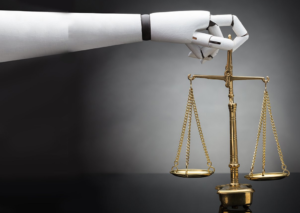Indeed, the question itself raises several questions regarding the possibility of implementing AI in Indian judicial review. Though it cannot be denied that Artificial Intelligence has facilitated numerous advantages in various sectors. The existence of robots in the legal arena indeed sounds like science fiction but is vastly adopted by a number of developed countries. This increasing existence of Robots in the realm of the judicial system has been possible due to its dynamic features including automated decision making (McKay, 2020). Well, AI has its foothold in Chinese legal systems where Xiaofa, an AI-enabled robot, efficiently facilitates legal guidance and assistance to general society (Deng, 2018).

Since 2017, Robot judges are already functioning in China and America and handling specific cases associated with trade, e-commerce and copyright issues. In such cases, the AI device critically analyses the uploaded data and decide an appropriate verdict by measuring laws and facts. The best example of automation of the courtroom cannot be discussed without a reference to Estonia. The region has outstandingly managed AI-enabled robots for resolving small claim disputes. Now one may question “Is this possible in India?” In an interview with Justice Surya Kant, presently supreme court judge has expressed his concern over the replacement. However, both the possibilities and pitfalls are there in the way of such replacement in the courtroom is not clear yet.